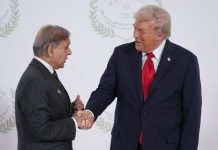Pakistan’s economy is in deep financial crisis and exploring bailout package from the International Monetary Fund (IMF). Pakistan is also seeking investment from friendly countries to reduce debt which includes China and Saudi Arabia. Islamabad needs to arrange a whopping $20 billion instantly to avoid a major financial crisis.
- Imran Khan Did Not Approve Provocative Stamps on Kashmir; Then Who Did?
- Al-Jazeera Criticises NYT Editorial on Kashmir Dispute, Kashmiri Pandits Ask Counter Questions
“No single nation appears to be willing to provide the entire debt amount ($18-20 billion) required to run the country in the current fiscal year 2019,” said Citi Head of Public Sector, Middle East, Pakistan & Levant, Head of Banking, UAE and Oman Naveed Kamal.
The statement comes in the backdrop of Pakistan’s meeting with friendly countries like Saudi Arabia and China to arrange financing in order to avoid going back to the IMF.
Foreign currency reserves of Pakistan have plummeted to a hazardous level of $9.04 billion that provides import cover for only around one and a half month. And “the trade deficit of $30-35 billion is completely unsustainable,” he added.
Besides going to the IMF, Pakistan needs to improve exports and draw foreign direct investment (FDI) to avoid the balance of payments crisis and bailouts in the future.”
Islamabad should invest money in export-oriented projects and formulate a stable environment to attract FDI. The official was of the view that China’s multibillion-dollar investment in Pakistan under the China-Pakistan Economic Corridor (CPEC) should not be regarded negatively. “Infrastructure development is a must to attract FDI,” he said.
Hunger Threat in Pakistan
Citi Country Officer Pakistan Nadeem Lodhi estimated that China had so far invested around $20 billion in Pakistan’s Early Harvest infrastructure and power projects under CPEC. He said the projects would address the economic woes of the country, which was a must to attract much needed foreign investment.
Experts said if the situation around the world remained the same, it would push millions of people to hunger. To avoid that, they said, the governments and private sectors should play their role and invest in health, education, and technology across the world.
More News at EurAsian Times
- Is PM Modi Planning to Divide J&K into 3 Parts Before 2019 Elections?
- India Using Israel’s “Palestine Strategy” To Crush Rebellion in Kashmir?
- Saudi Money, US Weapons, Israeli Intelligence Fuelling Arab NATO – Iran
- Indian Army Knows The Exact Location of 12 Terror Launch Pads in Pakistan; But Can They Strike?




